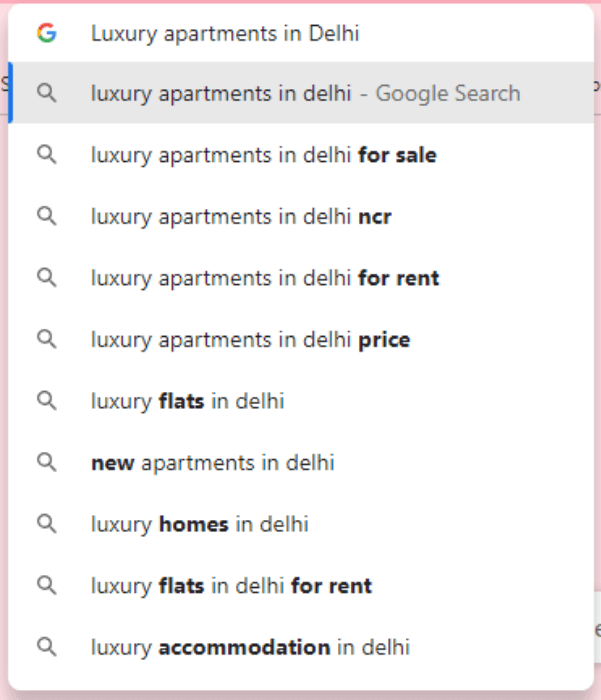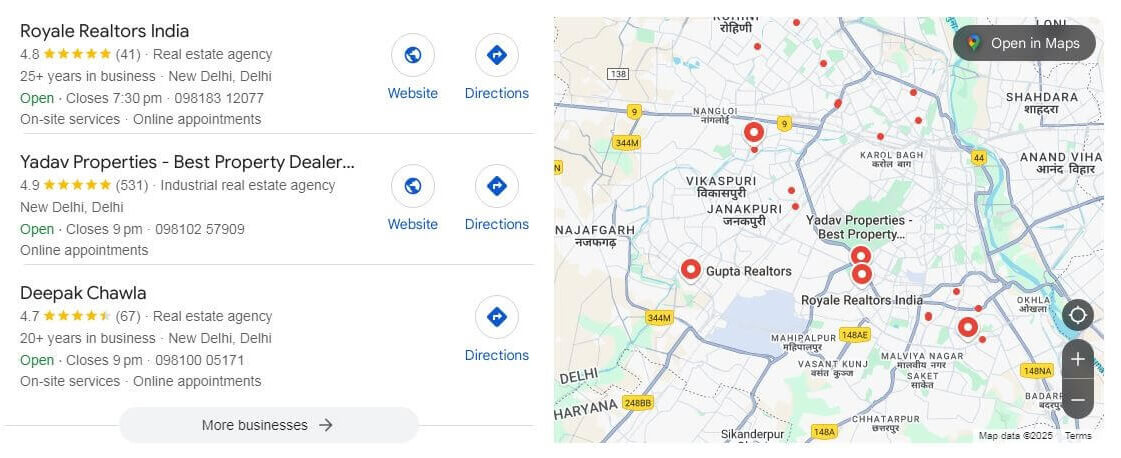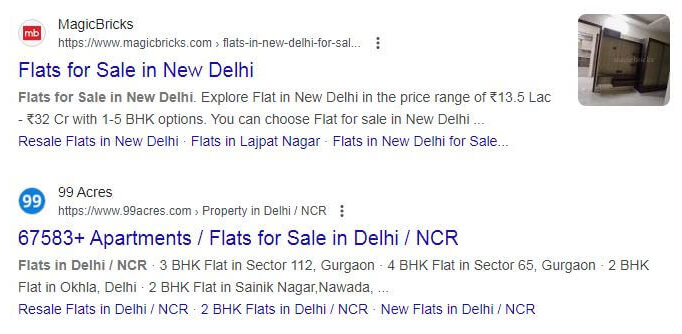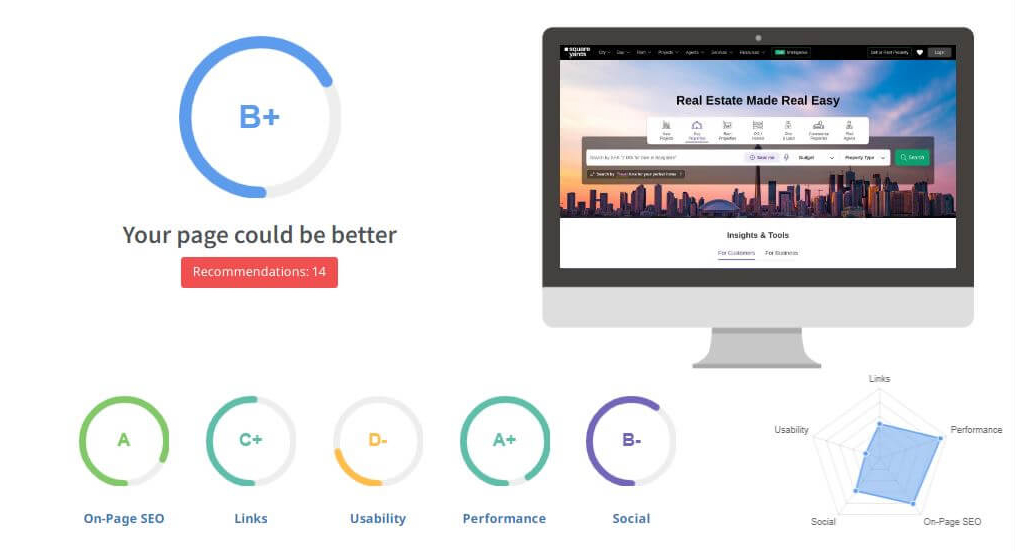In today's digital age, having a strong online presence is essential for every business. For real estate companies in India, this is especially true. SEO for Real Estate in India has become one of the most important tools for attracting buyers, sellers, and investors online. If you are a builder, real estate agent, or a property listing website, investing in SEO can help you grow your business and stay ahead of your competition.
What is SEO and Why is it Crucial for Real Estate Businesses?


SEO stands for Search Engine Optimization. It is the process of improving your website’s visibility on search engines like Google. When people search for property-related terms such as "flats for sale in Gurgaon" or "2BHK apartments in Noida," you want your website to appear at the top of the results. This is where Real Estate SEO in India plays a major role.
The main goal of SEO is to drive organic (non-paid) traffic to your website. This means that you attract visitors without spending money on ads. For real estate companies, SEO is crucial because:
- Most property buyers start their search online.
- High rankings on Google build trust and credibility.
- SEO brings long-term benefits compared to paid advertising.
- It helps you reach your target audience in specific locations.
The Importance of SEO in the Competitive Real Estate Market
India’s real estate market is growing rapidly. With so many builders, agents, and portals competing for attention, it is very important to stand out. SEO for Real Estate in India can give you a competitive edge by making sure that your website appears in front of the right audience.
Here are a few reasons why SEO is important in such a competitive market:
- Visibility: The higher you rank on search engines, the more people will visit your site.
- Relevance: SEO helps you attract people who are actually looking for your services.
- Brand Authority: Ranking high builds your brand as a trustworthy option in the market.
How Real Estate SEO Differs from Other Industries
While SEO is important for every business, real estate SEO India is unique in several ways:
- Local SEO: Real estate searches are often location-based. For example, someone might search for “plots for sale in Noida.” So, your SEO strategy should focus on local keywords and Google My Business listings.
- High-Value Transactions: Real estate deals involve large investments. So, buyers do a lot of research before making a decision. Your website should provide detailed, helpful content to guide them.
- Visual Content: Images, virtual tours, and videos play a big role in real estate. Your SEO strategy should also optimize these elements for better performance.
Real estate SEO in India must be tailored to match the needs of the local audience, real estate trends, and search behaviors.
Why Real Estate SEO Matters
In the Indian real estate sector, digital competition is at an all-time high. Whether you are promoting residential properties, commercial spaces,
or land, your online presence needs to be strong and visible. This is where SEO for Real Estate becomes a game-changer.
Increased Online Competition in the Real Estate Sector
Over the past decade, the number of real estate portals and property listing websites in India has increased significantly. People now prefer searching for homes and investment properties online rather than visiting multiple brokers. As a result, every builder and agent wants their website to rank higher.
Here are some factors contributing to increased competition:
- Growing use of smartphones and the internet.
- Rise of online-only real estate platforms.
- High volume of daily property-related searches.
To stay relevant, real estate companies must adopt strong Real Estate SEO strategies that help them rank above their competitors.
Building Brand Credibility and Trust Through SEO
People trust websites that appear on the first page of search engines. If your real estate website consistently ranks high, visitors are more likely to trust your services. SEO for Real Estate helps you achieve this credibility.
Here’s how SEO builds trust:
- High-quality, informative content improves your reputation.
- User-friendly websites enhance the browsing experience.
- Positive reviews and backlinks from reputable sites strengthen your brand image.
When potential clients trust your brand, they are more likely to contact you, explore your listings, and eventually make a purchase.
The Impact of SEO on Organic Traffic, Leads, and Sales
One of the biggest advantages of SEO for Real Estate in India is that it boosts organic traffic. This means more people visit your site without you having to spend on paid ads. More traffic leads to more inquiries, which ultimately results in more property sales.
Some key benefits include:
- Higher ROI: Unlike paid ads, the effects of SEO are long-term and cost-effective.
- Targeted Leads: SEO helps attract users who are actively searching for properties.
- Better Conversion Rates: When people find your website through relevant searches, they are more likely to convert into buyers.
Keyword Research for Real Estate SEO
Keyword research is one of the most important parts of a successful SEO strategy for real estate in India. It helps you understand what terms potential buyers and renters are typing into search engines. When you use the right keywords on your website, you increase the chances of appearing on Google when people search for properties.
How to Conduct Keyword Research for Real Estate
Start by thinking like a buyer. What would someone search if they were looking for a property in your area? Use tools like Google Keyword Planner, Ubersuggest, or Ahrefs to find keywords with high search volume and low competition.
Use variations and combinations of real estate terms like:
- Flats for sale in Delhi
- Luxury apartments in Noida
- Buy 2BHK in Dwarka
Identifying the Best Keywords for Real Estate Listings
The best keywords are those that:
- Match the property type and location (e.g., "1BHK in Whitefield Bangalore")
- Show buyer intent (e.g., "ready to move flats in Pune")
- Are used commonly in online property searches
SEO for Real Estate works best when these keywords are added naturally into property titles, descriptions, and content pages.

Long-Tail Keywords vs Short-Tail Keywords in Real Estate SEO
- Short-tail keywords are generic like "flats for sale" or "property in India."
- Long-tail keywords are more specific like "affordable 2BHK flats in Thane."
Long-tail keywords are more targeted and usually have less competition. They attract people who know exactly what they want.
Using Local SEO for Better Targeting (City, Neighborhood, etc.)
Local SEO for real estate helps you target buyers in specific areas. Optimize your site for:
- Local keywords like “luxury flats in Noida Sector 62”
- Google My Business listing
- Location-specific content and blog posts
Local SEO makes it easier to appear in search results when someone looks for properties in a specific city, neighborhood, or street.
On-Page SEO for Real Estate Websites
On-page SEO for Real Estate Websites is the process of optimizing elements on your website to improve search visibility.
this includes optimizing your listings, blog content, and even your site’s structure.
Optimizing Title Tags and Meta Descriptions
Title tags should include your target keyword and property type. Example:
- Title: “3BHK Apartments for Sale in Gurgaon | Your Company Name”
- Meta Description: “Explore ready-to-move 3BHK flats in Gurgaon. Prime location, modern amenities. Contact us today!”

Creating SEO-Friendly URLs for Listings and Pages
Use clean, keyword-rich URLs. Avoid numbers or codes. Example:
- Good: www.example.com/2bhk-flats-in-bangalore
- Bad: www.example.com/page?id=12345
Importance of Header Tags (H1, H2, etc.) in Structuring Content
Header tags help Google understand your content’s structure. Use one H1 tag for the main heading, followed by H2 and H3 for sub-sections. This also improves readability for users.
Content Optimization (Property Descriptions, Blogs, FAQs)
Use your keywords naturally in:
- Property titles and descriptions
- Blog posts about real estate trends
- FAQ sections answering common queries
Engaging content increases time spent on site and boosts your SEO performance.
Internal Linking Strategies for Real Estate Websites
Link to related listings, blog posts, or service pages within your content. This helps search engines crawl your site and keeps users engaged.
Example: “Looking for 3BHK in Pune? Check out our listings in Baner and Kharadi.”
By implementing these on-page SEO strategies for real estate websites, you improve your chances of ranking higher and attracting more quality leads online.
So what are you waiting for the world is out there waiting for your business. Start acting Global!
Local SEO for Real Estate
Local SEO for local searches, you ensure your business shows up when potential buyers or renters are looking for properties in your target areas.
Why Local SEO is Important for Real Estate Businesses
- Real estate is a location-specific industry. Buyers want properties in a specific city, locality, or even street.
- Local SEO increases your chances of showing up in Google’s local pack (the map results).
- It drives high-intent traffic from users actively searching for properties near them.

Google My Business for Real Estate Agents and Agencies
Claiming and optimizing your Google My Business profile for Real Estate is essential. It helps your business appear in local search results and on Google Maps.
Make sure to:
- Use accurate business information
- Add high-quality property images
- Respond to reviews
- Include relevant keywords in your GMB description
Optimizing for "Near Me" Searches
Many users search for terms like “real estate agent near me” or “flats near me.” You can rank for these by:
- Adding your business address and contact info on every page
- Including phrases like “real estate agency near [location]” in your content
- Embedding Google Maps on your website
Reviews and Reputation Management for Local SEO
Online reviews influence your rankings and buyer trust. Ask satisfied clients to leave reviews on Google, Facebook, and real estate directories. Always respond professionally to both positive and negative feedback.
Ensuring Mobile Optimization for Real Estate Websites
With most users browsing properties on smartphones, your website must be mobile-friendly. Use responsive design to provide a seamless experience across all devices.
Technical SEO for Real Estate Websites
Technical SEO ensures your real estate website is well-structured, fast, and easy for search engines to crawl. It forms the foundation of your entire SEO strategy.
Website Speed and Its Effect on SEO Rankings
Slow websites lead to high bounce rates and poor user experience. Compress images, use caching, and choose a fast hosting provider to speed up your real estate website.
Using Schema Markup for Real Estate Listings
Schema markup helps search engines understand the type of content on your site. Use real estate-specific schema to tag:
- Property type
- Price
- Location
- Number of bedrooms and bathrooms
This can enhance your appearance in search results with rich snippets.
XML Sitemaps and Robots.txt for SEO
Create and submit an XML sitemap to Google Search Console. It helps search engines index your pages efficiently. Use the robots.txt file to control which pages you want crawled.
Addressing Website Security (HTTPS)
Google prefers secure websites. Make sure your site uses HTTPS instead of HTTP to protect user data and gain a small SEO boost.

Content Marketing for Real Estate SEO
Content is at the heart of SEO for real estate. A well-planned content strategy can drive traffic, educate your audience, and convert visitors into leads.
Blogging for Real Estate SEO: Types of Content to Create
Start a real estate blog with posts like:
- Property market trends in India
- Local area guides
- Buyer and seller tips
- Investment advice
This type of content targets long-tail keywords and builds authority.



































